MED-EL
Published Apr 05, 2023 | Last Update Sep 28, 2023
Hearing With Passive Middle Ear Implants
The middle ear is made up of several tiny bones that work together to transport sound waves to the inner ear and then to our brains, enabling us to hear. Unfortunately, it's not uncommon for this sensitive system to stop working. But passive middle ear implants can help people with conductive hearing loss by replacing the tiniest bones in the body.
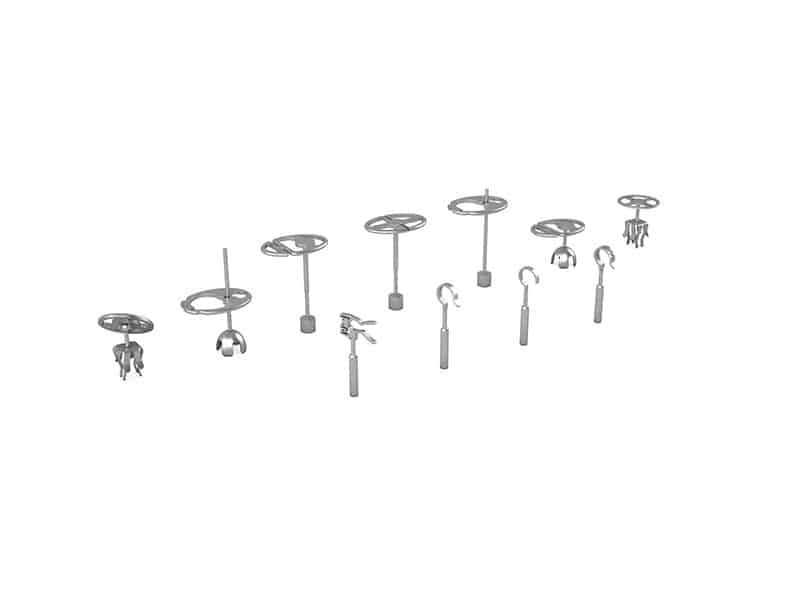
Passive Middle Ear Implants—Invisible Help for Conductive Hearing Loss
Our ears do amazing things every day! They work around the clock and transform sound waves into small movements and then into electric impulses so that the brain can interpret these waves as noises, voices, or music.
But that’s just the beginning: There are not only “noises,” “voices,” and “music”—we’re able to differentiate between countless sounds and identify various instruments; we can hear whether a note is high or low, loud or quiet, whether a voice is gentle or forceful.
This is a very sensitive system in which many tiny parts have to work together exactly in order for it to function. Unfortunately, it’s not all that rare for a part of this system to stop working, causing hearing to be impacted. In this article we would like to focus on the ossicular chain (which consists of the malleus, incus, and stapes) and what happens when it no longer works properly.
Which Functions Do the Malleus, Incus, and Stapes Have?
Sound waves are transformed into mechanical movements by the eardrum. The malleus is connected to the eardrum. It absorbs the eardrum’s movements and transmits them to the incus and then the stapes. The movement of the stapes stimulates the fluid of the inner ear, where electric impulses are generated that can be interpreted by the brain.
When one or more of the bones in the ossicular chain can no longer vibrate properly, sound information can’t be properly transmitted, and that results in conductive hearing loss.
Why Does the Ossicular Chain Lose Its Function, and What Can Be Done About It?
Various factors can cause the ossicular chain to stop working properly. In most cases, the cause is a chronic middle ear infection which can attack the ossicular chain and cause it to break down. Infections can cause scarring or tissue growth in the middle ear (cholesteatoma) which can prevent the ossicular chain from vibrating properly.
In cases like this, tympanoplasty prostheses can help. Tympanoplasty comes from the Greek word tympanon, meaning drum, and refers to the tympanic cavity of the ear. Plasty means surgical restoration. These implants are inserted into the middle ear, where they replace the damaged bones and make the transmission of sound information possible.
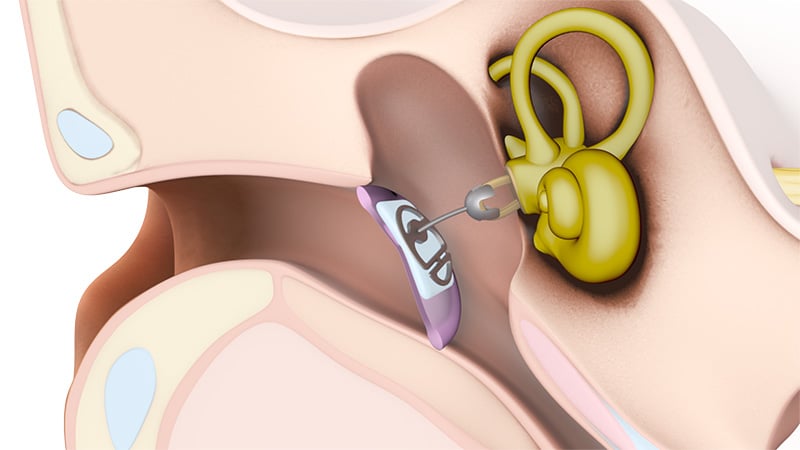
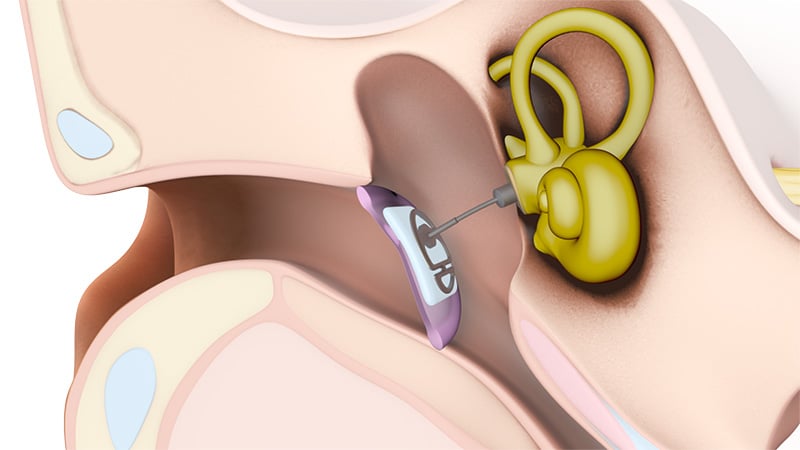
Both tympanoplasty and stapes prostheses can also be used when the ossicular chain has been damaged by trauma (such as a head injury) or when it is unable to move due to a congenital malformation.
How Does the Surgery Work, and Can Anyone Receive Passive Middle Ear Implants?
Nowadays, ossicular chain reconstruction is part of day-to-day operations at ENT clinics. The surgeon opens the middle ear via the ear canal, gets an overview of the situation there, decides which implant is most suitable for the patient, and then inserts it. The operation can take as little as 30 minutes, but it can also take significantly longer depending on the condition of the middle ear.
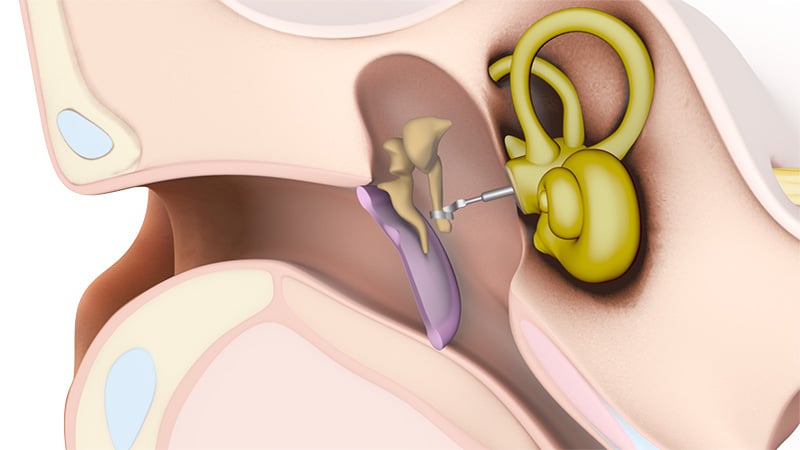
Stapes prostheses replace the stapes
A completely different condition can lead to stiffening of the ossicles: otosclerosis. This is an ossification of the structures of the middle ear, mostly starting with the stapes, which prevents it from being able to move.
That’s when a stapes prostheses can help. The implant is inserted into a small hole in the stapes footplate. Because the malleus and incus are normally still able to vibrate in the case of otosclerosis, they transmit these vibrations to the implant, and this movement stimulates the transmission of sound information directly to the fluid of the inner ear.
“Most patients are generally surprised afterwards because although the ear is sensitive, there is very little postoperative pain, and patients can get up right after the operation.”
Dr. med. Christoph Oidtmann
Marienkrankenhaus, Hamburg
Tympanoplasty and stapes prostheses can help anyone, regardless of age. At birth, the middle ear is completely developed and doesn’t grow any further—that means that when a baby gets a prosthesis, it will theoretically still fit in adulthood.
The size of the middle ear is, of course, not the same for every person. To account for this, the prostheses are available in various lengths. What’s more, we’re talking about implants that are very, very small—they replace the smallest bones in the body. Here’s a picture to give you an idea:
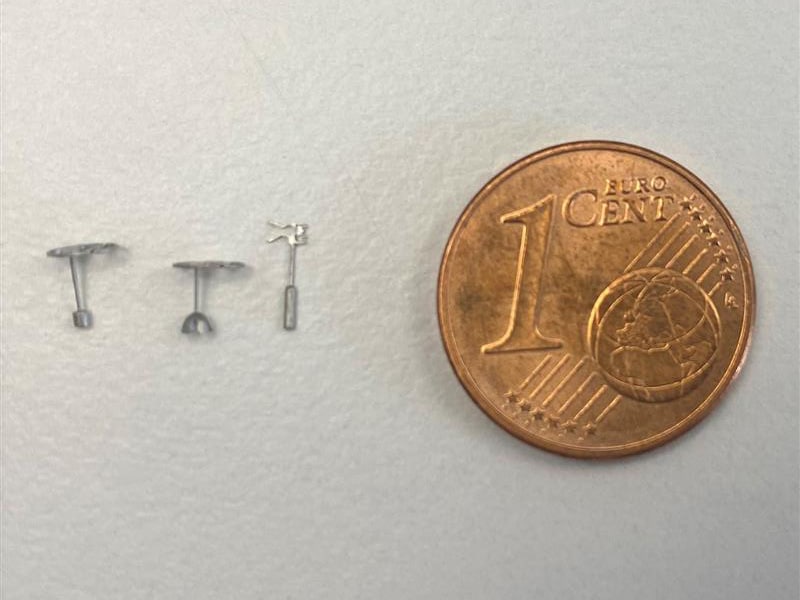
Passive middle ear implants are smaller than a coin
Tympanoplasty and Stapes Prostheses From MED-EL
We incorporated passive middle ear implants into our portfolio in 2020. This decision brings us one step closer to our mission of overcoming hearing loss as a barrier to communication and quality of life.
Tympanoplasty and stapes prostheses are effective as an initial treatment for many types of hearing loss, and thousands of people around the world are already benefiting from these implants. MED-EL stands for high-quality hearing implants, and we have applied our knowledge and experience in the development of tympanoplasty and stapes prostheses as well.
- Only the best: Our tympanoplasty and stapes prostheses are made of titanium because this material is known for its biocompatibility and biostability, and its properties also guarantee very good sound transmission.
- The individual comes first: We have various different designs and lengths so that the right prosthesis is available for every person.
- Ready for anything: Passive middle ear implants from MED-EL are MRI-conditional up to 7.0 Tesla
- Show me yours: With a MED-EL tympanoplasty or stapes prosthesis, you receive an implant passport that you can show when needed as proof that you have a hearing implant.
- Trust in MED-EL: If a tympanoplasty and stapes prosthesis turns out not to be the right decision for you in the long run, MED-EL will still be here for you. We can offer you the complete portfolio of hearing implants along with our customer service.
References
MED-EL
Was this article helpful?
Thanks for your feedback.
Sign up for newsletter below for more.
Thanks for your feedback.
Please leave your message below.
Thanks for your message. We will reply as soon as possible.
Send us a message
Field is required
John Doe
Field is required
name@mail.com
Field is required
What do you think?
The content on this website is for general informational purposes only and should not be taken as medical advice. Please contact your doctor or hearing specialist to learn what type of hearing solution is suitable for your specific needs. Not all products, features, or indications shown are approved in all countries.
Wayne kuhns
October 31, 2024
I have been wearing aid for about 10 years. My last check-up said indeed something ther than aids because my hearing has deteriorated too much for aids
MED-EL
November 04, 2024
Hi Wayne, thank you for your comment. If you think you might benefit from one of our hearing solutions, we suggest reaching out to your local audiologist or MED-EL team, as they can assist you personally and assess your candidacy. If you'd like to get in touch with us, you can do so via this form: https://www.medel.com/contact-med-el. Kind Regards, Giulia
Nishanth
November 13, 2024
How much cost machine
MED-EL
November 13, 2024
Nishanth, thank you for your question. Your local MED-EL team is best equipped to provide pricing information as they have the most up-to-date information for your country. We would recommend getting in touch via this contact form: https://www.medel.com/contact-med-el Kind Regards
MED-EL
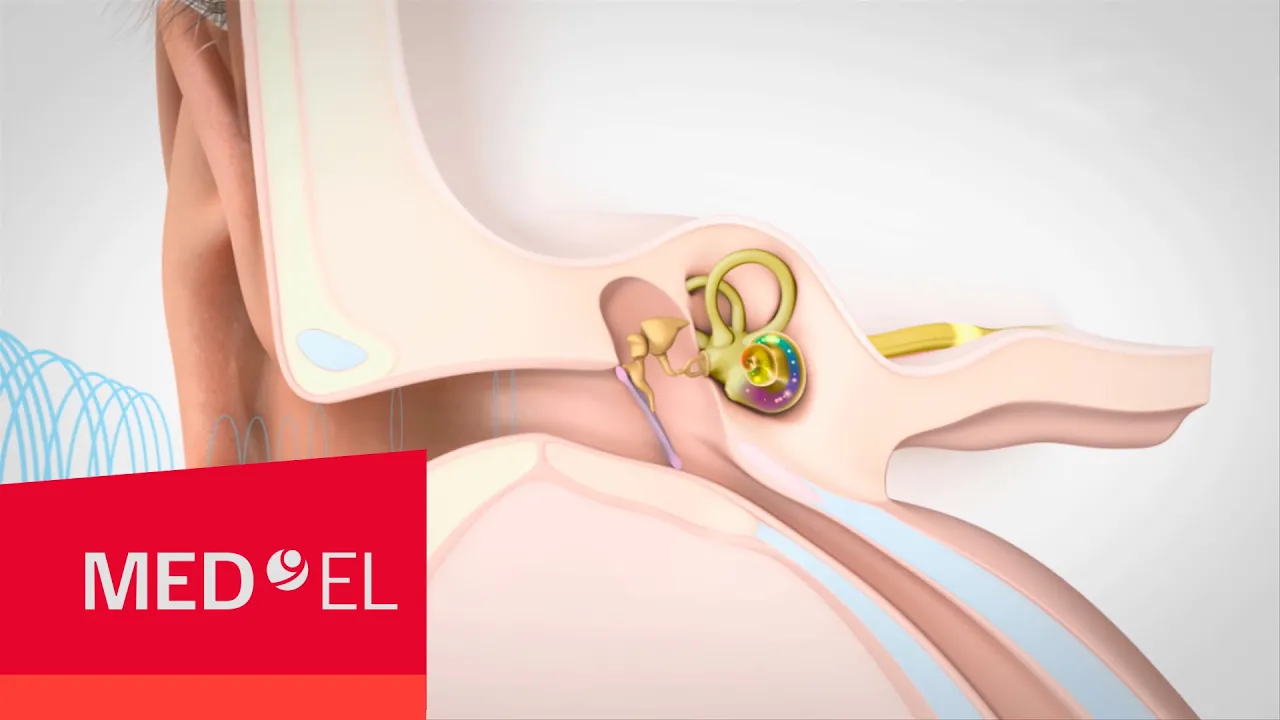



Conversation
2 Comments